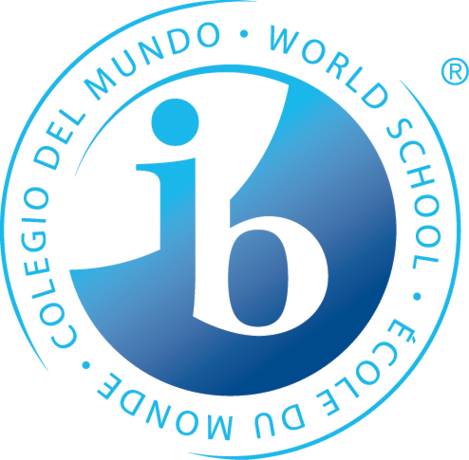IB Programme

International Baccalaureate Programme at Bellerose
Benefits to Students
IB learners are:
- encouraged to think critically and solve complex problems.
- a driver of their own learning.
- a core part in educational programmes that can lead them to some of the highest-ranking universities around the world.
- more culturally aware, through the development of a second language.
- able to engage with people in an increasingly globalized, rapidly changing world.
IB learners receive:
- an international qualification that is recognized by colleges and universities around the world with advanced standing.
- advanced credit towards undergraduate degrees at universities both local and abroad.
- scholarships and post-secondary grant opportunities.
- access to IB alumni networks of professionals and graduate students.
IB Courses Offerings and Descriptions
5 credits (for both English 20-1 and 30-1)
The English A: Literature course aims at developing an understanding of factors that contribute to the production and reception of literature—the creativity of writers and readers, the nature of their interaction with their respective contexts and with literary tradition, the ways in which language can give rise to meaning and/or effect, and the performative and transformative potential of literary creation and response. Students will consider their own interpretations as well as the critical perspectives of others, to explore how such positions are shaped by cultural belief systems and to negotiate meaning.
5 credits
Language B is a language acquisition course designed for students with some previous experience of French. Students hone their ability to communicate through the study of language, themes and texts. Students continue to develop their knowledge of vocabulary and grammar, as well as their conceptual understanding of how language works.
Prerequisite: French 10. Recommended prerequisite: French 10i
5 credits
Language ab initio is a language acquisition course designed for students with no previous experience in—or very little exposure to—Spanish. Students develop the ability to communicate through the study of language, themes and texts. There are five prescribed themes: identities, experiences, human ingenuity, social organization and sharing the planet.
Prerequisite: Spanish 10. Recommended prerequisite: Spanish 10i
5 credits (for both Social Studies 20-1 and 30-1)
The DP history course is a world history course based on a comparative and multi-perspective approach to history. It involves the study of a variety of types of history, including political, economic, social and cultural, and provides a balance of structure and flexibility. The course puts a premium on developing the skills of critical thinking, and on developing an understanding of multiple interpretations of history.
Prerequisite: Social Studies 10-1. Recommended prerequisite: Social Studies 10i.
5 credits (for each Biology 20 & Biology 30)
Biology is the study of life. The vast diversity of species makes biology both an endless source of fascination and a considerable challenge. By studying biology in the DP, in addition to learning the basic principles and concepts of ecology, molecular biology, anatomy and physiology, students become aware of how scientists work and communicate with each other.
Prerequisite: Science 10i for Biology (HL) Y1 + Biology 35IB; Biology (HL) Y1
5 credits (for each Chemistry 20 & Chemistry 30)
Chemistry is an experimental science that combines academic study with the acquisition of practical and investigational skills. Chemical principles underpin both the physical environment in which we live and all biological systems. The DP chemistry course allows students to develop a wide range of practical skills and to increase facility in the use of mathematics. It also allows students to develop interpersonal and information technology skills, which are essential to life in the 21st century.
Prerequisite: Science 10i for Chemistry SL Y1; Chemistry SL Y1 for Chemistry SL Y2
5 credits per course
The IB DP Computer science SL course, underpinned by conceptual thinking, enables and empowers innovation, exploration, and the acquisition of further knowledge. During the course the student will develop computational solutions involving the ability to: identify a problem or unanswered question; design, prototype and test a proposed solution; liaise with clients to evaluate the success of the proposed solution; and make recommendations for future developments.
Students can opt to complete a set of alternative assessments in Computer Science 30 to earn credit for Computer Science (SL). Students can opt to complete a set of alternative assessments in Computer Science year two to earn credit for IB Computer Science SL.
Prerequisite: Computer Science 10 for Computer Science SL Year 1; Computer Science 20 or SL Year 1 for Computer Science SL Year 2.
5 credits per course (for both Mathematics 30-1 and Mathematics 31)
The IB DP Mathematics: analysis and approaches course recognizes the need for analytical expertise in a world where innovation is increasingly dependent on a deep understanding of mathematics. The focus is on developing important mathematical concepts in a comprehensible, coherent and rigorous way, achieved by a carefully balanced approach. A strong emphasis is placed on the ability to construct, communicate, and justify correct mathematical arguments.
Prerequisite: Math 20i for Math SL Year 1; Math SL Year 1 for Math SL Year 2
5 credits per course
Visual Ars is a thought-provoking course in which students develop analytical skills in problem-solving and divergent thinking, while working towards technical proficiency and confidence as art-makers. The course is designed for students who want to go on to study visual arts in higher education as well as for those who are seeking lifelong enrichment through the visual arts.
Prerequisite: Art 10 for Visual Art HL Year 1, Visual Art HL Year 1 for Visual Art HL Year 2
3 credits per course
The theory of knowledge (TOK) course provides an opportunity for students to reflect on the nature, scope and limitations of knowledge and the process of knowing. In this way, the main focus of TOK is not on students acquiring new knowledge but on helping students to reflect on, and put into perspective, what they already know.
Prerequisite: none for Theory of Knowledge 25; TOK 25 is a prerequisite for Theory of Knowledge 35
3 credits
The extended essay is a compulsory, externally assessed piece of independent research into a topic chosen by the student and presented as a formal piece of academic writing.
3 credits (Biology 25IB)
Students are enrolled in Biology 25, a locally developed course, in the second semester of their Grade 11 year. This arrangement gives additional credit to students completing HL Biology.
Corequisite: Science 10 (must be taken along side Biology (HL) Y1
3 credits
Students are enrolled in English Literature 35, a locally developed course, in the second semester of their Grade 11 year. This arrangement gives additional credit to students completing HL Literature.
Corequisite: Language A: Literature (HL) Year 1
3 credits
Students are enrolled in World History 35, a locally developed course, in the first semester of their Grade 12 year. This arrangement gives additional credit to students completing HL History.
Corequisite: History (HL) Year 2

